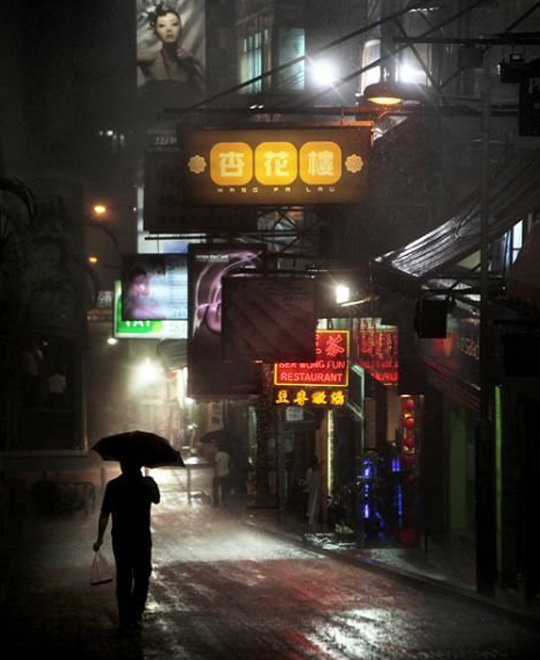Studio N
MUP Studio N: Night Time
Testing Urban Solutions After Hours
Professor Michele ACUTO
STUDIO OUTLINE
The ‘night time test’ challenge
Urban planners, designers and managers are more and more called upon to develop new solutions to deal with today’s growth of cities and the world’s condition of planetary urbanisation. Yet current urban developments, strategies and policies might be flawed by a fundamental bias, accounting only for half of urban life: we often discount the challenge of cities ‘afterhours’. The night-time has for too long remained a residual category of strategic urban thinking and demands much more thorough academic, technical and policy thinking. Several cities have recognised this with the recent introduction of night time strategies, pilot programs, night time strategies and commissions, even ‘night mayors’ – not least in London, Amsterdam or Sydney.
This planning studio tackles the ‘night time’ challenge for built environment scholars and practitioners and offers a venue to further refine interdisciplinary and policy-relevant skills of urban planning professionals.
The studio is run in collaboration with Arup, a global built environment consulting firm, presenting students with a chance to both test interdisciplinary urban analysis as well as practical (industry and policy) engagement approaches. This studio has an explicit international planning/design perspective and focuses on sharpening and testing international, interdisciplinary and night time skills for those aiming at a career oriented towards multiple countries, cities and urban policymaking contexts around the world. It offers a chance for regular engagement with the studio partner, Arup, and its extensive operate in offering strategic advice and expert intervention in cities the world over.
The students are tasked with developing innovative approaches to account for the night in urban planning, design, construction and policy. The studio takes a design approach to produce tangible practice-worthy tools. Students work with instructors and experts (from academia and practice) to identify key nigh-time challenges for cities, testing the input provided by diverse mode of thinking about the urban against ‘after-hours’ and ’24 hour' views of the city. Working in groups and with practitioners at Arup and other key ‘night time’ actors, students will develop, pilot and propose inventive applications that stress test current planning, design and construction against the urban night time. In order to do so, students \engage in teams with selected international urban contexts to ground their approaches in international comparative thinking and seek inspirations from contexts other than their immediate surroundings. Finally, students will develop pilot night time ‘tests’ to assess whether urban solutions are ‘night proof’ and afford some sensibility to the peculiarities of managing the city at night, presenting their proposed ‘tests’ to a panel of experts for evaluation.
STUDIO SKILLS
The studio is centred around developing and testing two sets of analytical skills that are key to both scholars and practitioners in today’s built environment professions, along with a set of thematic skills around the issue of night time planning, governance and management. These three, combined, form the core of the activities of the studio, the basis of the studio’s assessment and the angles through which the studio engages with professionals and academics throughout the semester.
- Comparative and international urban analysis. Built environment practitioners, and city leaders, operate today in a world that is deeply urbanised. This means seeing “cities in a world of cities” (Robinson 2011) and thus appreciating how the specificity of a city’s local issue might be related, where not connected, to the experiences of other cities. The studio’s first analytical skill set is focused on appreciating this comparative and international outlook onto urban issues, aiming to develop an engagement with international cases and other scholarly/practitioner communities not just to ‘reach out’ but also to better solve our own local challenges.
- Interdisciplinary and practice-oriented urban analysis. No urban issue, today, can be simply addressed from a single disciplinary approach. Civil engineers are increasingly called upon to collaborate with planners, architects with social scientists, computer scientists with experts of the arts and humanities. Urban challenges call for silo-breaking and inter-sectorial approaches, and the capacity to synthesize different viewpoints into tangible and actionable urban plans. The studio’s second set of analytical skills is focused on refining the students’ capacity to marry different disciplinary angles to solve practical problems and engage with the practices.
- Night time urban analysis. Core to the studio’s third set of analytical skills is the challenge that thinking of cities ‘afterhours’ presents us all with. This set of skills is oriented towards appreciating the nature of night time (and ‘24hr’ or ‘afterhours’) realities, develop a capacity to identify the night dimension of common planning problems and a night time ‘sensibility’ that is attuned to interrogating urban problems beyond their day time reality.
Mixed together, these three sets of skills are designed to equip students to develop their own individual proposals for innovative ‘night time tests’ that built environment professional, such as colleagues at Arup, can deploy to appreciate whether their plans, engineering solutions and policies are night proof and sensible towards the whole spectrum of the city’s life, not just the day.
STUDIO LEADER
Prof Michele Acuto is Professor of Global Urban Politics in the Faculty of Architecture Building and Planning, having joined the University of Melbourne in April 2018 from University College London, where he was director of the UCL City Leadership Lab, and the University of Oxford, where he was Stephen Barter Fellow of the Oxford Programme for the Future of Cities. Prof Acuto has a background in international law and politics, and international urban planning, and has worked with this Studio’s partner, Arup, for over 7 years.
ST1 Tuesdays 09:00-12:00 in MSD Room 240
ST2 Wednesdays 09:00-12:00 in MSD Room 124
